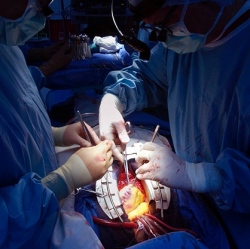
In 2010, the top three causes of death were heart disease, cancer, and noninfectious respiratory disease. "If science and medicine are so great, then why are so many people dying of cancer?" This question has been asked of me more than a few times. The answer is complex and there are many different facotrs to consider.
(1) Most importantly, we are dying of cancer because more of us are living long enough to die of cancer. Thanks to scientific and technological advances, Americans no longer drop dead of diphtheria (which, in 1900, was the #10 cause of death). In 1900, the average American lifespan was a paltry 46.3 years for males and 48.3 years for females. By contrast, in 2010, life expectancy was 76.2 years for men and 81.1 years for women. Of course, as Thaddeus Sim smartly points out on his blog, that doesn’t mean that old people didn’t exist in 1900. They did. But, a far smaller percentage of Americans made it to old age: Fewer than half of Americans made it to age 60 in 1900, but more than half of Americans made it to age 80 in 2000.
The point is that life expectancy and the percentage of Americans reaching old age are both increasing. That explains why, as a paper in The New England Journal of Medicine showed, cancer was the #8 cause of death in 1900 but the #2 cause of death in 2010.* We aren’t dying of cancer because of Monsanto’s pesticides and GMOs, as one lady recently said to me in an e-mail. We are dying of cancer because we are running out of things to die from. As George Johnson explained in the New York Times:
"[P]eople between 55 and 84 are increasingly more likely to die from cancer than from heart disease. For those who live beyond that age, the tables reverse, with heart disease gaining the upper hand. But year by year, as more failing hearts can be repaired or replaced, cancer has been slowly closing the gap."
(2) We are becoming better at diagnosing cancer. That’s not necessarily good news. It is still possible that an early detection will not cause you to live a moment longer. (This is a phenomenon referred to as lead time bias.) But, knowing the cause of death is better than not knowing, and we have become quite good at medical diagnostics.
(3) We are, indeed, slowly winning the war against cancer. How so? As a 2014 paper in CA: A Cancer Journal for Clinicians explains, a combination of factors, including early detection, preventative measures, and improved treatment, has reduced the cancer mortality rate from a peak of 215 deaths per 100,000 people in 1991 to 172 deaths per 100,000 people in 2010. A graph from the paper beautifully summarizes:
Read original article…
